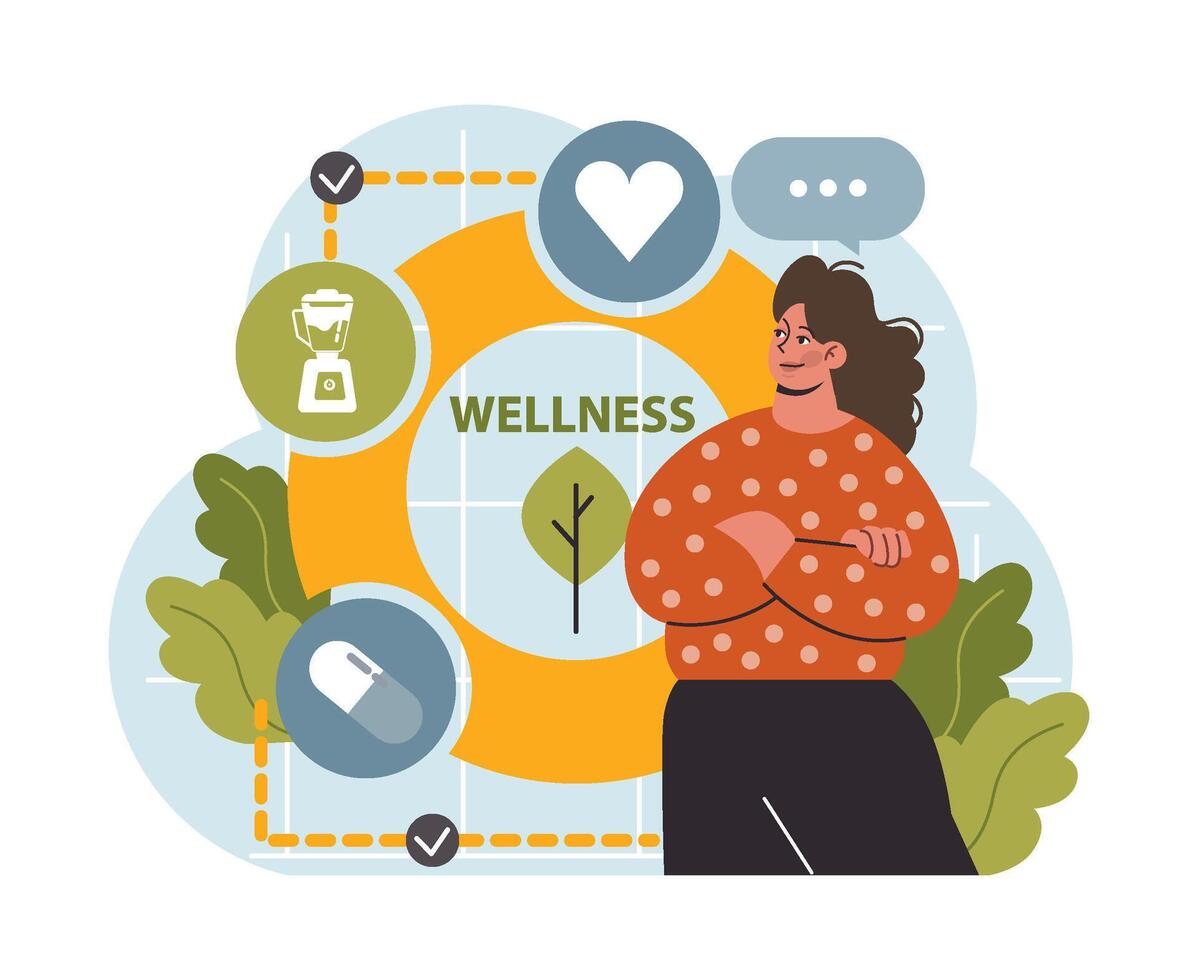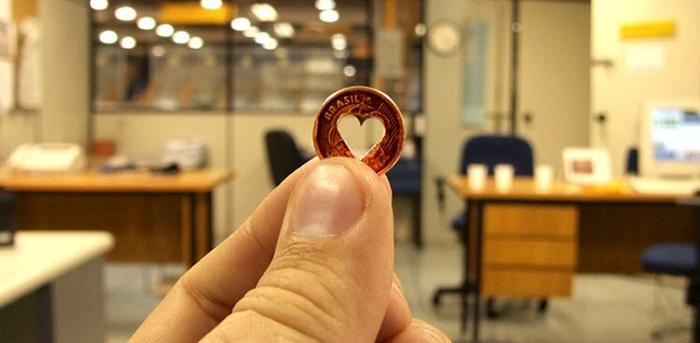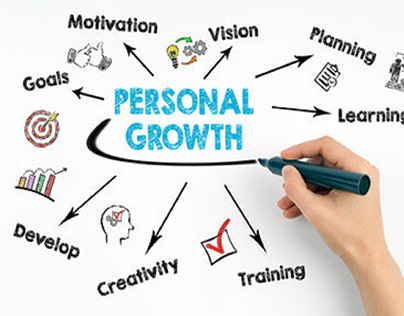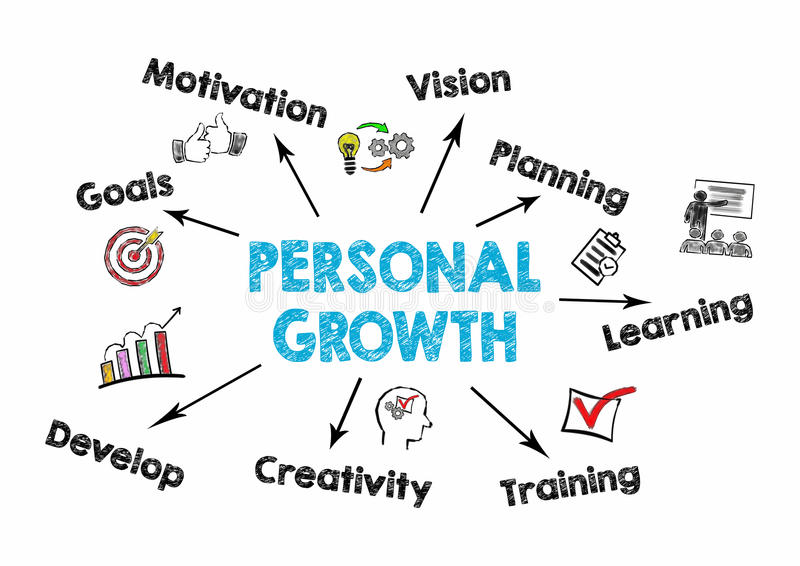Plenty Nine’s Blueprint for Modern Wellbeing offers a clear plan to improve health, mindset, and relationships in today’s busy world. It combines practical steps for physical fitness, emotional strength, and social connections to help people live balanced and meaningful lives. This approach meets the needs of modern life without overcomplicating wellbeing.
The blueprint also focuses on redefining productivity and using digital tools in a way that supports mental health and personal growth. It shows how small, consistent changes can create lasting positive effects, even when life feels overwhelming.
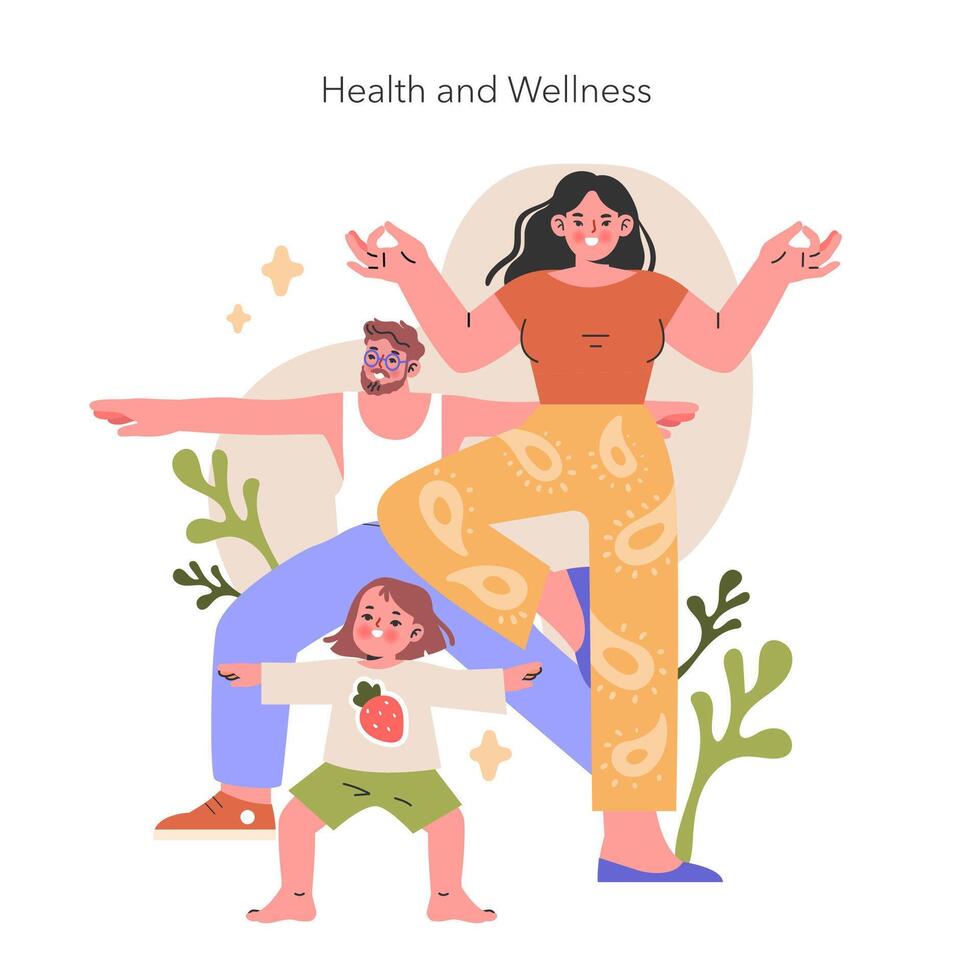
By addressing environment and community, the plan helps people find support and stay motivated through challenges. This guide aims to create a sustainable path for overall wellness that evolves with the future’s demands.
Key Takeaways
- Wellbeing includes physical, mental, and social health together.
- Personal growth and balanced productivity improve life quality.
- Environmental and community support help maintain positive changes.
Understanding Plenty Nine’s Blueprint Framework
Plenty Nine’s framework is built on specific ideas that shape modern wellbeing. It has developed over time with clear steps focusing on health, balance, and growth. The key parts include guiding beliefs, its history, and the main factors that support wellbeing today.
Core Principles and Philosophy
Plenty Nine’s blueprint is based on holistic health. It sees wellbeing as a blend of mental, physical, and social health. The framework believes that true wellbeing requires balance across these areas, not just fixing one part.
It promotes personal responsibility where individuals take charge of their health choices. At the same time, it values connection with others and the environment. The blueprint focuses on practical, everyday actions that anyone can apply.
Historical Evolution of the Blueprint
Plenty Nine started as a small health initiative in the early 2010s. It began by focusing mainly on physical fitness. Over time, it expanded to include mental health and social wellbeing as research showed these were critical.
Between 2015 and 2020, Plenty Nine added tools for emotional resilience and stress management. This shift made the program more comprehensive. The current version blends traditional wellness ideas with modern science and community support.
Key Pillars of Modern Wellbeing
The blueprint rests on four main pillars:
- Physical Health: Exercise, nutrition, and sleep habits.
- Emotional Balance: Managing stress, mindfulness, and emotional intelligence.
- Social Connection: Building strong relationships and community ties.
- Purpose and Growth: Setting life goals and continuous learning.
Each pillar gets equal focus to help individuals achieve lasting wellbeing. Plenty Nine provides resources and plans around these pillars to guide people clearly.
Physical Health Revolution
This approach focuses on real changes in diet, exercise, and sleep. It uses clear methods backed by science to help people improve their bodies and energy levels.
Holistic Nutrition Approaches
Plenty Nine promotes eating whole foods like vegetables, fruits, lean proteins, and healthy fats. It avoids processed foods high in sugar and unhealthy fats. Meals are balanced to provide steady energy throughout the day.
Hydration is emphasized, with a goal of drinking enough water daily for proper body function. They also recommend mindful eating—paying attention to hunger and fullness signals to prevent overeating.
Supplements are used carefully, based on individual needs rather than trends. The focus is on natural sources first, using vitamins or minerals only when diet alone is insufficient.
Science-Based Movement Strategies
Physical activity is planned around maintaining strength, flexibility, and heart health. Plenty Nine encourages a mix of aerobic exercises like walking or cycling with resistance training using body weight or light weights.
Workouts are designed to fit realistic schedules, emphasizing consistency over intensity. Stretching and mobility exercises help prevent injuries and improve posture.
The program discourages fad workouts or extremes. Instead, it relies on proven routines shown to improve health markers such as blood pressure and muscle mass.
Restorative Sleep Practices
Sleep quality is treated as essential for overall wellbeing. Plenty Nine suggests setting a regular bedtime and wake time to support the body’s natural rhythms.
They recommend creating a sleep-friendly environment: keeping the room dark, cool, and quiet. Avoiding screens and caffeine before bed helps people fall asleep faster.
Relaxation techniques like deep breathing or gentle stretching before bed are encouraged. Making sleep a priority helps improve mental clarity, mood, and physical recovery.
Emotional and Mental Resilience
Building strong emotional and mental resilience involves learning practical techniques to manage stress, shape positive thinking patterns, and find a healthy balance with technology use. These steps help maintain wellbeing even during challenges.
Mindfulness and Stress Reduction
Mindfulness means paying attention to the present moment without judgment. It helps reduce stress by calming the mind and body. Plenty Nine encourages practices like deep breathing, body scans, and mindful walks.
These activities lower cortisol, a stress hormone, which can improve mood and focus. Daily mindfulness also trains the brain to respond calmly to difficult situations instead of reacting with anxiety or frustration.
Plenty Nine often suggests starting with just five minutes a day and gradually increasing the time. Consistency is key to seeing benefits in emotional stability and mental clarity.
Developing a Growth Mindset
A growth mindset is the belief that abilities can improve with effort and learning. Plenty Nine promotes this idea to help people overcome obstacles and build confidence.
By viewing challenges as opportunities to grow, individuals can manage setbacks without giving up. This mindset also encourages curiosity and creativity, which support long-term mental health.
Techniques include setting small goals, celebrating progress, and learning from mistakes. Plenty Nine advises regular reflection on achievements to reinforce a positive attitude toward personal development.
Balancing Technology and Mental Health
Technology can both support and harm mental health. Plenty Nine stresses the importance of managing screen time and digital habits mindfully.
Setting limits on social media use and turning off notifications during focused tasks helps prevent distraction and stress. Regular breaks from devices allow the brain to rest and reduce feelings of overwhelm.
Using technology for positive activities, like guided meditation or connecting with supportive communities, can enhance wellbeing. Plenty Nine encourages users to be intentional about digital choices to maintain mental balance.
Social Connection and Community Building
Strong social ties and teamwork are key to feeling supported and secure. Building real relationships, working well with others, and managing online social life all help improve wellbeing.
Cultivating Meaningful Relationships
Meaningful relationships depend on trust, honesty, and regular communication. People should focus on quality over quantity, choosing to spend time with those who truly support their growth.
Active listening and empathy help deepen connections. Simple actions like sharing experiences or showing appreciation can strengthen bonds.
Setting boundaries also matters. It allows relationships to stay healthy by respecting each person’s needs and limits.
Collaborative Support Systems
Collaborative support means working together to solve problems and share resources. It creates a network where everyone benefits and feels valued.
This kind of system involves clear communication, shared goals, and mutual respect. Teams or groups that practice these principles often have higher morale and better outcomes.
Support can be emotional, practical, or informational. Providing relevant help boosts resilience and reduces feelings of isolation.
Digital Wellbeing in Social Spaces
Online interactions can connect people but also cause stress or distraction if not managed properly. Balancing screen time with real-world contact is crucial.
Setting limits on notifications and social media use helps prevent burnout. Choosing positive and respectful online communities supports mental health.
Using digital tools to schedule meetups or share support can strengthen offline bonds. Knowing when to disconnect is as important as knowing how to connect.
Purpose and Personal Growth
Developing a clear sense of purpose and focusing on personal growth help individuals build a balanced and meaningful life. This involves setting specific goals, continuously learning new skills, and making daily choices that reflect core values.
Goal Setting and Achievement
Plenty Nine stresses the importance of creating clear, realistic goals. Setting goals that are specific, measurable, and time-bound helps people stay motivated and track progress. Breaking big goals into smaller tasks makes them less overwhelming.
They encourage reviewing goals regularly. This helps adjust plans to stay on track or change priorities when needed. Achieving goals builds confidence, which supports ongoing growth and wellbeing.
Fostering Lifelong Learning
Lifelong learning is a key part of Plenty Nine’s approach. Staying curious and open to new knowledge keeps the mind active and adaptable. This includes reading, taking courses, or practicing new skills regularly.
They suggest making learning a daily habit. Even small, consistent efforts add up over time. Learning also helps individuals adapt to change and improve problem-solving abilities, which are critical for wellbeing.
Aligning Daily Habits with Values
Plenty Nine highlights the need to align daily habits with personal values. This means identifying what matters most and creating routines that support those priorities. Daily actions become more meaningful when they reflect core beliefs.
They recommend tracking habits using simple tools like journals or apps. This helps in recognizing unhelpful routines and replacing them with positive ones. Aligning habits with values strengthens purpose and improves mental clarity.
Redefining Productivity for Wellbeing
The idea of productivity now includes balancing work with personal health and mental clarity. It focuses on blending tasks, managing time thoughtfully, and knowing when to rest.
Work-Life Integration Strategies
Work-life integration means mixing work and personal time so they fit naturally together. This approach avoids strict boundaries that can cause stress.
Setting clear priorities helps. For example, scheduling focused work hours but leaving space for breaks or family time keeps things flexible. Using tools like calendars or apps to block time for different activities prevents overlap and burnout.
Employers can support this by allowing remote work and flexible hours. This way, individuals handle personal needs without sacrificing work goals.
Mindful Time Management
Mindful time management is about paying close attention to how time is spent and making intentional decisions. It involves planning tasks based on their importance and energy levels rather than just urgency.
People benefit from breaking work into smaller chunks with short breaks in between. This improves focus and reduces fatigue. Using techniques like the Pomodoro method, where work sessions last 25 minutes followed by 5-minute rests, helps maintain steady productivity.
Tracking daily activities can reveal distractions or wasted time. Adjusting schedules based on these insights can make time use more effective.
Recharge and Recovery Techniques
Recharging is essential to sustain energy and mental health. Taking regular breaks during the day, especially away from screens, helps the brain reset.
Recovery also includes good sleep habits. Consistent sleep schedules and avoiding stimulants before bed improve rest quality.
Physical activity like stretching or short walks aids recovery by increasing blood flow and reducing tension. Mindfulness practices such as deep breathing or meditation support mental relaxation.
Incorporating these techniques daily prevents burnout and keeps productivity balanced with wellbeing.
Digital Tools Within the Blueprint
Digital tools help users stay organized and motivated in their wellbeing journey. They offer ways to choose the best apps for personal needs and track progress with clear data.
Choosing Effective Wellbeing Apps
Choosing the right wellbeing app depends on clear goals. The app should match whether users want to manage stress, sleep better, or exercise more.
Key features to look for include:
- User-friendly design
- Evidence-based methods
- Customizable settings
- Regular updates and support
Many apps also offer reminders and goal-setting tools. These features keep users engaged and focused.
Users should read reviews and test free versions before committing. This helps find an app that fits personal habits and preferences.
Tracking Progress and Measuring Success
Tracking progress lets users see real improvements over time. Digital tools often provide charts and logs that show changes in mood, sleep, or activity levels.
Consistent data entry is crucial. It helps reveal patterns and areas needing adjustment.
Some tools offer goal achievement badges or stats summaries. These features motivate users by showing clear success markers.
Combining multiple tracking apps can give a fuller picture. For example, pairing a sleep tracker with a meditation app helps users understand the link between rest and relaxation.
Environmental Influences on Modern Wellbeing
The right environment shapes how people feel and function every day. Physical comfort and access to nature both play important roles in reducing stress and improving focus.
Creating Supportive Physical Spaces
Wellbeing grows in spaces designed for comfort and efficiency. Plenty Nine emphasizes arranging furniture to allow easy movement and reduce clutter.
Natural light is vital. Rooms with large windows or skylights help regulate sleep patterns and improve mood. Temperature control also matters; spaces should not be too hot or cold.
Colors impact feelings too. Soft blues and greens tend to calm, while bright reds can increase energy but may cause agitation if overused. Quiet areas free from noise distractions support concentration and mental rest.
Nature Integration in Daily Life
Access to natural elements supports wellbeing by lowering stress hormones and improving cognitive function. Plenty Nine suggests bringing plants indoors, which boosts air quality and mood.
Daily exposure to green spaces, even through short walks outside, refreshes the mind. Views of trees or gardens from a window can also reduce feelings of anxiety.
Using natural materials like wood or stone in home and work settings connects people to the outdoors. These elements create a calming atmosphere that helps maintain focus and emotional balance.
Sustaining Change and Overcoming Challenges
Making lasting improvements requires steady effort and smart strategies. It is important to create routines that support ongoing progress and to understand how to handle common obstacles.
Building Habits for Long-Term Success
Plenty Nine focuses on turning actions into habits by encouraging small, consistent steps. Repeating a simple task daily helps it become automatic over time.
They suggest setting clear, achievable goals. Using reminders like phone alarms or notes keeps these goals present in daily life. Tracking progress visually, like with charts or apps, motivates and shows growth.
Consistency is key. Even if results seem slow, regular effort builds momentum. Plenty Nine advises celebrating small wins to maintain motivation and reduce burnout.
Navigating Common Roadblocks
Challenges like loss of motivation or unexpected events can disrupt progress. Plenty Nine advises preparing for these by identifying triggers that lead to setbacks.
When obstacles occur, shifting focus back to core goals is vital. Breaking tasks into smaller parts makes them easier to handle during tough times.
Support systems matter. Reaching out to friends, coaches, or community groups can help maintain accountability and provide encouragement.
Flexibility is important. Adjusting plans rather than stopping efforts keeps growth moving forward despite difficulties.
Future Directions in the Blueprint for Wellbeing
Plenty Nine aims to develop new tools that adapt to changing lifestyles. They focus on personalizing wellbeing plans to fit individual needs more closely. This allows users to stay engaged and make progress over time.
Technology will play a larger role in the future. Artificial intelligence and data tracking can help provide real-time feedback. These features make it easier to maintain healthy habits consistently.
The blueprint plans to include more than just physical and mental health. It will cover social and environmental wellbeing as well. This broader approach helps users create balance across different life areas.
Key focus areas include:
- Better integration with wearable devices
- Enhanced support for mental health challenges
- Workplace wellbeing programs
- Community and social connection features
Plenty Nine is reviewing current research to keep the blueprint evidence-based. They seek partnerships with experts to improve their methods. As new wellbeing trends emerge, the blueprint will be updated to reflect them.
User feedback will continue to shape future versions. Plenty Nine values clear and simple guidance. This ensures all users can easily understand and apply the blueprint in daily life.
